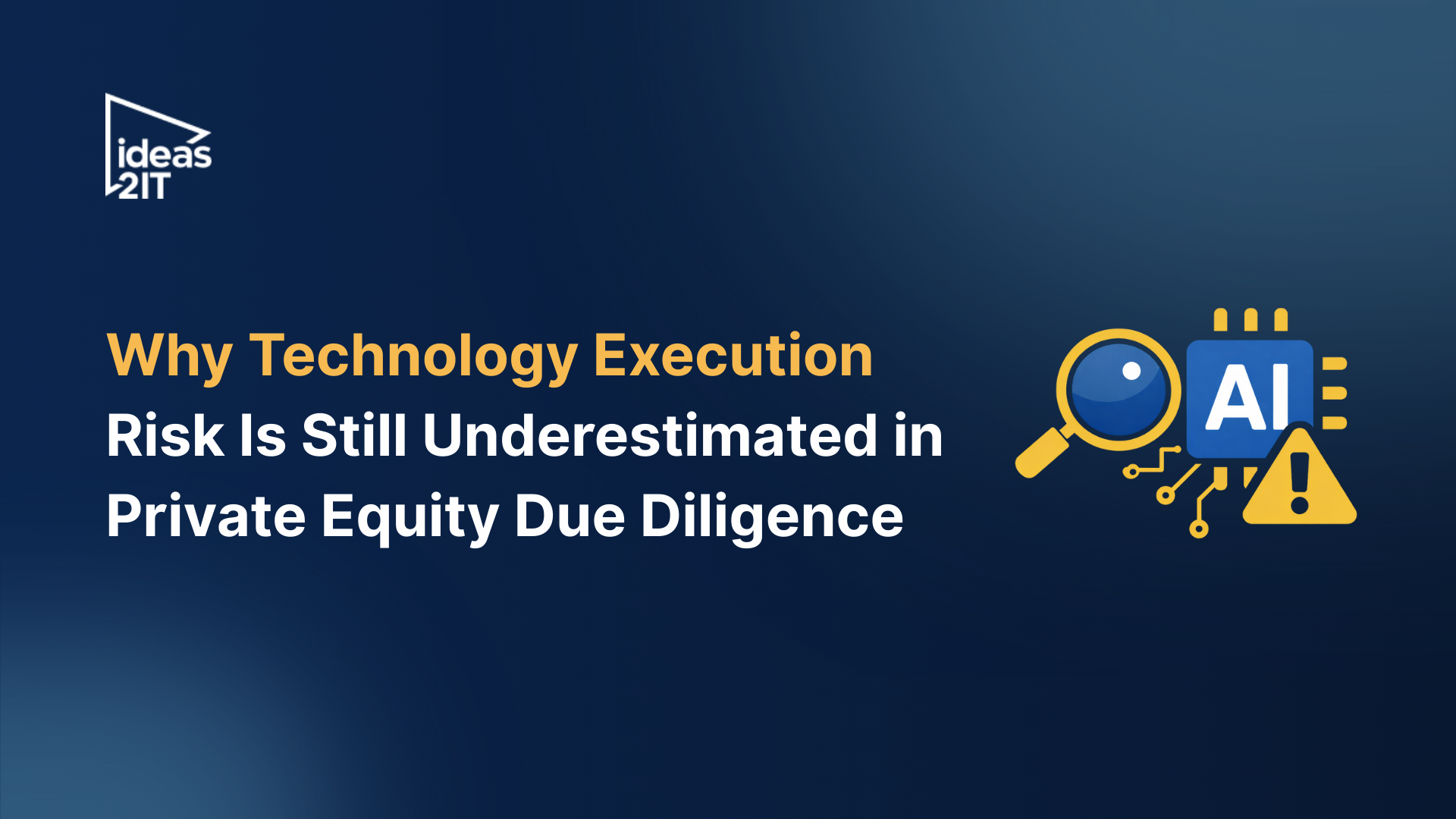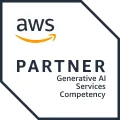AI in Pharmaceutical Industry: 8 Use Cases & Challenges
TL'DR
In the face of recent global challenges, the pharmaceutical industry has demonstrated an urgent need for swift responsiveness. The integration of machine learning and artificial intelligence (AI) has emerged as a pivotal force, significantly hastening the pace of drug discovery and transforming traditional approaches to healthcare innovation.
However, alongside these advancements, we also acknowledge the challenges that arise. How can we effectively expedite the development and regulatory approval of novel pharmaceutical technologies while ensuring safety and efficacy? This article delves into opportunities, use cases and challenges posed by artificial intelligence and machine learning in the pharmaceutical industry, encompassing predictive analytics, enhanced clinical trials, and breakthroughs in disease diagnosis and treatment strategies.
2024 Growth Stats for AI in Pharmaceuticals
- The Artificial Intelligence in Pharmaceutical Market is projected to achieve a market size of USD 18.06 billion by 2029, with a robust compound annual growth rate (CAGR) of 42.68% from 2024 to 2029.
- AI in drug discovery has the potential to shorten drug development timelines by up to two years.
- Research indicates that AI could potentially cut down the drug development timeline and save approximately $26 billion.
- Implementing AI in clinical trials has the potential to reduce costs by 70% per trial and shorten timelines by 80%.
- Leaders recognize the potential of Generative AI to enhance efficiencies by 92% and facilitate faster decision-making by up to 65%.
The Use of AI in Pharmaceutical Industry
The use of artificial intelligence in pharmacy and medicine represents one of the most cutting-edge scientific endeavors in recent history. This growth aligns with the robust market projections, where the Artificial Intelligence in Pharmaceutical Market size is estimated at USD 3.05 billion in 2024, projected to reach USD 18.06 billion by 2029, growing at a CAGR of 42.68% during the forecast period (2024-2029). Below, we highlight 9 uses of AI in the pharmaceutical industry that are driving this exponential growth.
1. Drug Discovery and Manufacturing
By historic standards,the average vaccine development time is 10–15 years. The mumps vaccine actually set the speed record at just 4 years. But COVID-19 was a wake-up call. It proved that, in the midst of a pandemic, time is a luxury we can’t always afford.
Within just three months of the first outbreak, COVID vaccines had already entered human trials. But how? Researchers and developers leveraged the combined power of big data, machine learning, and computation analysis. Designing an effective vaccine requires a thorough understanding of the virus itself, from the structure of the small molecule to its actions in the human body.
AI technologies made it possible to visualize, in detail, all of this key data. Additionally, sophisticated predictive models provided insight into likely genetic mutations, which helped anticipate future stages of vaccine development.
2. Clinical Trials
According to a study conducted by Deep 6 AI, about 86% of clinical trials fail to recruit enough patients. This is because most studies acquire participants through doctor-patient referrals, leaving the process to chance and circumstance.
With new advances in AI, pertinent patient data can be proactively mined from both structured and unstructured sources. By parsing through enormous digital archives, AI can make accurate patient recommendations based on a thorough examination of medical history, demographic information, and other key criteria.
3. Diagnosis and Disease Identification
Sophisticated AI algorithms can now analyze diagnostic medical images. By detecting subtle changes and pathological patterns in medical scans, diseases can be identified at an earlier stage than ever before. This allows for rapid and effective intervention that would not be possible with the human eye alone.
At this time, implantable diagnostic technologies are also being developed. The aim is to provide a continuous, real-time feed of health data. By recording and monitoring baseline physiological and biological patterns over time, faint changes can be detected. Wearers and physicians alike are then alerted to these changes, and medical recommendations are made.
4. Disease Forecasting
Epidemiology is a cornerstone of public health. It is the scientific study of disease distribution, patterns, and causes across a population. Epidemiologists are employing Machine Learning and AI technologies to predict and monitor epidemics across the world—from seasonal colds to novel viruses.
Predictive forecasting has far-reaching consequences. When done correctly, it enables the timely and appropriate delivery of preventative healthcare. It also preempts necessary supply chain adjustments to ensure medical inventory is available in the right place at the right time.

5. Digital Medicine
Digital medicine is a subcategory of digital health. It comprises a host of electronic devices that measure and collect health data on behalf of a unified system, such as electronic medical records.
Sophisticated wearables measure internal health indicators like blood pressure, blood oxygen, core temperature, breathing rate, and even electrical activity throughout the brain, muscles, heart, and skin.
They can also measure environmental factors like GPS coordinates, direction of travel, elevation, physical movement, and sounds. Self-report data, including diet, wellbeing, and lifestyle, can also be collected.These AI-driven devices are used to anticipate, manage, and even treat illnesses and disorders. Examples include blood glucose sensors, heart-rate monitors, and other wearables.
6. Digital Therapeutics
Digital therapeutics (DTx) is a further subcategory of digital medicine. DTx uses AI and other technologies to spur positive behavioral changes in patients. In many use cases, patients have shown preliminary or early-stage symptoms of diseases like type II diabetes, heart failure, obesity, and substance abuse.
By using digital products to administer cognitive behavioral therapy (CBT), it’s become possible to improve long-term health outcomes. Moreover, DTx technologies are delivering increasingly personalized patient care, providing users with custom, evidence-based therapeutic interventions.
7. Cancer Research
AI has become an effective tool in cancer research and cancer drug development. A pharmaceutical company equipped with this technology can effectively adjust their development strategies to reflect new evidence. For instance, advanced algorithms can anticipate the way in which cancer cells become resistant to existing drugs.
AI is also being used for a variety of other cancer-related applications, such as to identify tumor neoantigens and improve tumor immunotherapy; to map radiation treatment plans with increased precision; to manage chemotherapy based on unique patient tolerance and treatment efficacy; and to generally improve clinical decision making (CDM) among oncologists and radiologists.
8. Computer Vision
Computer vision (CV) is a field within AI that promises many innovative applications. By learning to “see” and interpret visual information, CV algorithms can detect objects, classify images, identify anomalies, and make recommendations.Self-driving cars use a form of CV to detect pedestrians, assess traffic, find parking, and more. In healthcare, computer vision applications are largely related to the video and digital imagery produced by medical scans.
For instance, by using CV technology in conjunction with X-rays, subtle disease indicators can be discovered. CT and MRI scans also employ deep learning CV to detect a variety of medical issues including internal bleeding, clogged blood vessels, tumors, and more.
Revolutionize Your Healthcare Strategy with Ideas2IT’s AI Pharmaceutical Solutions
The intersection of artificial intelligence and pharmacy offers a host of exciting possibilities. Ultimately, the goal is to facilitate and improve clinical decision-making. Already, the use of artificial intelligence in pharmacy has enabled healthcare companies to improve every facet of their business, from R&D to patient outcomes.Discover how AI is reshaping the pharmaceutical landscape—from accelerating drug discovery to enhancing clinical trials and disease forecasting. Contact us today to explore custom AI solutions for your healthcare organization's digital transformation.
About Ideas2IT:
Are you looking to build a great product or service? Do you foresee technical challenges? If you answered yes to the above questions, then you must talk to us. We are a world-class Custom dot net development company. We take up projects that are in our area of expertise. We know what we are good at and more importantly what we are not. We carefully choose projects where we strongly believe that we can add value. And not just in engineering but also in terms of how well we understand the domain. Book a free consultation with us today. Let’s work together.



.avif)



.png)
.png)
.png)
.png)

.png)












